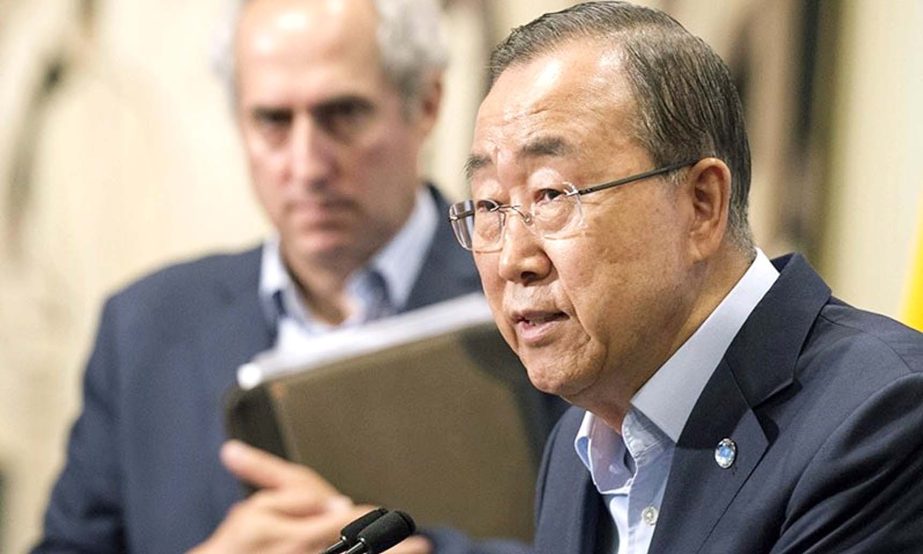
Agencies, United Nations :United Nations Secretary-General Ban Ki-moon has voiced alarm at the latest upsurge in violence along the disputed border of India and Pakistan in Kashmir that has killed at least nine people since last week.In statement released on Tuesday, the UN chief urged both governments of India and Pakistan to exercise maximum restraint and take all feasible steps to ensure the protection of civilians after the two countries continued to exchange heavy mortar fire almost daily over the past 10 days.”(Ban) expresses serious concern about the recent escalation of violence along the Line of Control between India and Pakistan, which reportedly resulted in a number of casualties on both sides, including civilians,” the UN press office said in a statement.On Sunday clashes between Indian and Pakistani troops along the border intensified killing at least eight people and wounding 14.The Indian-administered Kashmir has seen a spurt in violence in recent months and the UN’s statement on Tuesday, came as two people, including a policeman and a civilian, were killed when suspected rebels opened fire outside a Muslim shrine some 55km outside the capital Srinagar.Rebels in recent years have often attacked lone police officers on duty and snatched their service weapons.The ruling People’s Democratic Party (PDP) in Indian-administered Kashmir blamed the uptick in violence on elements across the border in Pakistan.”This is not a peaceful border, there are often clashes there …there are people on the other side [Pakistan-administered Kashmir] that don’t want us to succeed with our mandate of peace,” Waheed-Ur-Rehman, a youth leader and spokesperson of the PDP, told Al Jazeera.But following the clashes on Sunday, in which one civilian was killed and four others injured in areas of Pakistan-administered Kashmir, the Pakistan army said in a statement that India [had] “started unprovoked firing in the afternoon … Pakistani troops fittingly responding to Indian firing.”The PDP-led state government has been under intense pressure to revoke a special law, the Armed Forces Special Powers Act (AFSPA), in place since 1990 that gives immunity to Indian armed forces in disputed region.Rehman of PDP, which shares power with right-wing Bharatiya Janata Party, said his government had inherited AFSPA, and said revoking the law “was a process that would take time”.In July, human-rights group Amnesty International released a report documenting the obstacles to justice faced in several cases of human rights violations perpetrated by the Indian army in Kashmir.The group noted that their research “has repeatedly uncovered patterns of impunity, including unlawful government orders to the police not to register complaints of human rights violations against the security forces”.

